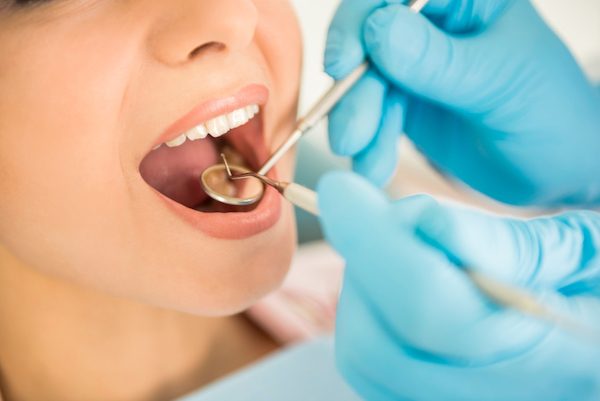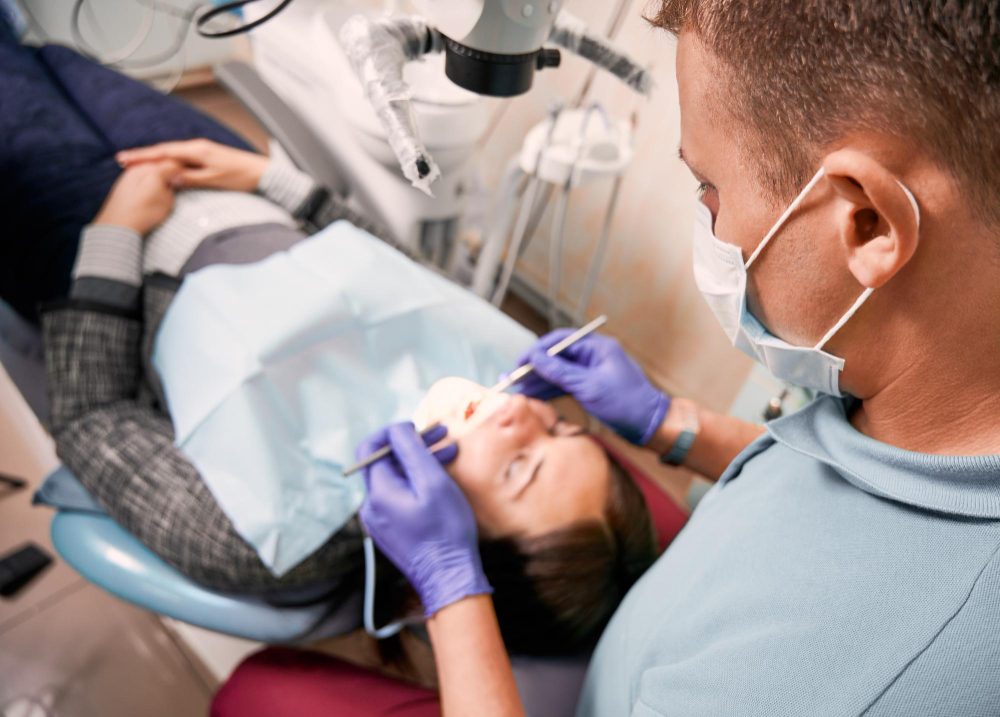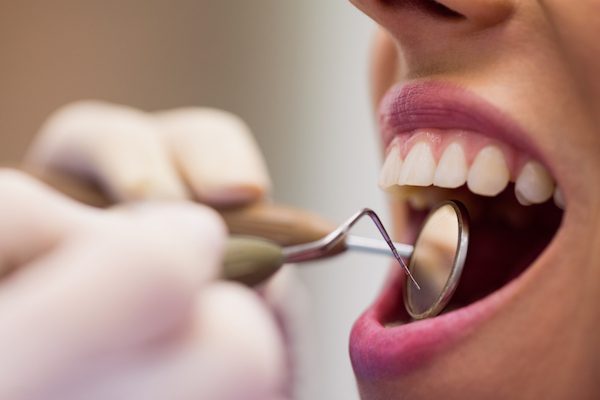Oral Cancer Examination
Oral Cancer Screening – What to Expect

Oral Cancer Examination Campbelltown
Exams for oral cancer are more than simply routine medical checks; they allow patients to discuss their dental phobias and worries with a dentist and seek advice on lowering their risk.
We advise screening for adults once a year for optimal oral health and early identification of any dental issues.
The short and painless screening can be done at a routine check-up session.
Oral Cancer Facts
- Three times as many people get oral cancer as cervical cancer.
- The 30-year survival rate for oral cancer has remained unchanged, and most cases are discovered in more advanced stages.
- Early diagnosis increases the chance of survival.
- Doctors advise performing oral cancer screenings once a year.

Symptoms of Oral Cancer
- Persistent mouth ulcers and sores in the mouth
- Mouth or ear pain
- Lump or swelling in the neck
- Swallowing issues or irregular swallowing
- A persistent painful throat that doesn’t coincide with any signs of a cold or another sickness
How you prepare
There is no need to prepare for an oral cancer examination. It is usually done as part of a standard dental appointment.
What to expect
Your Campbelltown dentist examines the interior of your mouth to search for mouth sores during an oral cancer screening examination.
The tissues in your mouth are felt by your Campbelltown dentist while wearing gloves to look for lumps or other anomalies.

Additional Tests for Oral Cancer Examination
In addition to oral examinations, some dentists use specialised testing.
These could consist of the following:
Using a specific dye to rinse your mouth before a test
This approach can detect and stain abnormal cells in your mouth.
Using a special light to illuminate your mouth
Healthy tissues look dark under this particular light, while diseased tissues appear white.
Oral Cancer Examination Results
The following steps should be taken if your Campbelltown dentist notices any indications of oral cancer or precancerous lesions:
Follow-up visits a few weeks later to check if the abnormal spot is still there and to note whether it has changed over time.
Using a biopsy, it is possible to identify the presence of cancer cells. Cells will be sampled for laboratory analysis. Your Campbelltown dentist might do the biopsy, or you might be sent to a doctor specialising in diagnosing and managing oral cancer.
Oral Cancer Examination in Campbelltown
Our advanced dental facility at Marketfair Dental Care is equipped with a cutting-edge system to help scan for and detect oral cancer at the earliest stage possible.
At Marketfair Dental Care, we treat all our patients as we would our families by using the most appropriate and cost-effective solutions.
Visit your Campbelltown dentist today!
For oral cancer examination in Campbelltown, contact us at (02) 4620 0800 or book an appointment online.
We are located at Marketfair Campbelltown Shop 21B, 4 Tindall St in Campbelltown.
FREQUENTLY ASKED QUESTIONS
What causes oral cancer?
The two primary risk factors for oral cancer are alcohol consumption and tobacco usage. Both are risk factors in and of themselves, but those who use both run considerably higher risks.
Where does oral cancer occur?
Aside from the tongue and floor of the mouth, the upper or lower jaw, lips, gums, and cheek lining are other areas where oral malignancies can develop.
Who is most at risk for oral cancer?
Oral cancer is more likely to occur among smokers and frequent drinkers.
Even if they don’t smoke or drink, those with a history of oral papillomavirus infections are more likely to get oral cancer.
How early can oral cancer be detected?
There is no regular screening procedure or programme for oropharyngeal and oral malignancies. However, many of these pre-malignancies and cancers can be detected early (when they are small) during routine oral examinations by a dentist, physician, or dental hygienist or by doing a self-exam.
